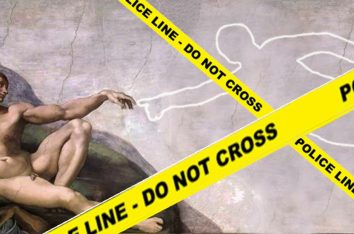I just returned from a Caribbean cruise (my life is hard), and I brought two books with me: Chuck Klosterman’s The Visible Man, and John D. Caputo’s Hoping against Hope: Confessions of a Postmodern Pilgrim. The former is a novel and is the one I was planning on reading (to be honest I wasn’t expecting to crack the latter at all). But as it turned out, I read almost all of Hoping while Visible remained untouched.
Caputo is one of the leading figures in the world of so-called “Radical Theology,” and this book explores his own spiritual journey from a young boy in his pre-Vatican 2 Philadelphia parish, through his time in a religious order as a young man, to his adulthood as a philosopher and theologian.
The basic gist of Caputo’s argument stems from a line from a German mystic (those “disturbers of the ecclesiastical peace”) who wrote,
The rose is without “why”;
It blooms simply because it blooms.
It pays no attention to itself,
Nor does it ask whether anyone sees it.
From this idea Caputo suggests that in order for something to truly be a gift of grace, it must be given unconditionally and “without why.” He sets this against what he calls the “economy of salvation,” according to which God’s gifts come with strings attached and something up the Giver’s sleeve. No, Caputo says, there is no need to “repay” God for the gracious gift of life or for anything else, since if we did, it would not truly be a gift at all, but a bribe.
How, then, do we respond to the graces we receive if not by rendering service to a divine Piper who demands to be paid?
It is here that another of Caputo’s more intriguing points comes into play. God, Caputo says, does not “exist” properly speaking, but rather he “insists.” In other words, God doesn’t stand outside of us as some external entity, but rather makes himself known more subtly and unconditionally (like the rose). Our job is to bring God’s existence into reality by acts of love for others, which is where God is ultimately known. This, Caputo says, is “risky business” on God’s part, for he is “emptying himself into the world” and depending on us to turn his insistence into concrete and loving existence.
To illustrate: We don’t see light, but it’s light that enables us to see everything else. We don’t experience life, but it’s life that provides the context for us to experience everything else. And likewise, we don’t “love God” as some extrinsic Being “out there,” but God is love, and it is by loving and wholeheartedly embracing the world that God not only is loved, but is brought into existence in tangible and sacrificial ways.
Now the connections to a more orthodox, straight-up Catholicism are not difficult to detect — the idea that God pours himself out riskily into the world is incredibly kenotic and incarnational (and I may explore these themes in subsequent posts). I am also curious to delve into the relationship between Caputo’s idea of unconditionality and Chesterton’s notion of “conditional joy” (which I really like).
But for now?
For now I would like to simply bask in the beauty of the rose: its pure graciousness, it’s nihilistic for-nothingness, and its complete and subversive lack of any justification whatsoever. If this were what theologians call “natural religion” — the bare-bones theism that lies behind all local religious narratives — well, it sounds pretty good to me.
(After all, who doesn’t love a rose?)
I’ll leave you with Caputo’s own description of “the smile on the face of matter”:
By “religion” I mean a way to hail the glory of the smile, to magnify the glory of the rose, a way to hail a world full of grace. . . . Its ultimate virtues are faith, hope, and love of the smile. Its ultimate prayer is to say yes to the promise of the world, amen to life in all its mortality and contingency, “come” to the event of the world, to time and its becoming, yes to what we cannot see coming. Yes, yes, amen, come. (While keeping our fingers crossed that life is not going to be a disaster.)
So say we all.




“… Heaven and Earth are FULL of Your Glory…”